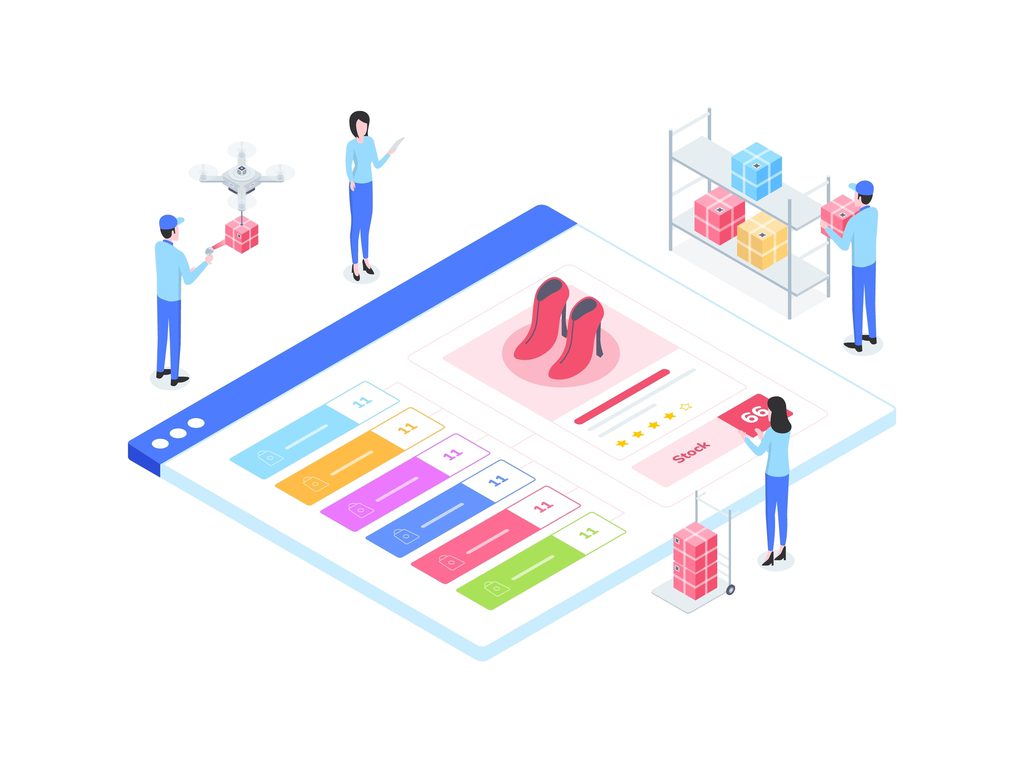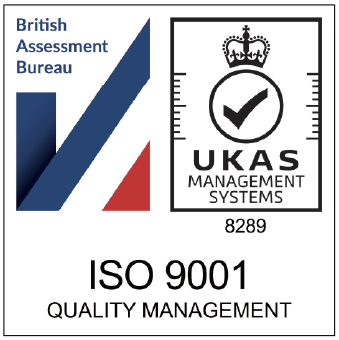Where do you sell your products? Through your website? Via Amazon? Through eBay?
If you’re selling through multiple channels then it’s vital that you’re able to handle inventory, order fulfilment and shipping efficiently for each one. If you don’t then you’ll have some unhappy customers on your hands. But, there is an answer – omnichannel fulfilment. Read our complete guide now.
What is omnichannel fulfilment?
Let’s start by answering the obvious question – what is omnichannel fulfilment?
Omnichannel fulfilment is a strategy that encompasses the order processing, picking, packing and shipping of orders that have been received from many different sales channels.
Under an omnichannel fulfilment strategy your inventory will be held in a single pool (as opposed to multi-channel fulfilment where your inventory is separated into different lots per sales channel).
Because your inventory is held in ‘common’ for all sales channels, this means that orders processed through each sales channel are treated the same, resulting in a faster, smoother fulfilment process – and happier customers!
Sounds good so far doesn’t it? Well, let’s take a look at some of the core advantages associated with moving to an omnichannel fulfilment strategy.
The benefits of omnichannel fulfilment
Provided you get it right, omnichannel fulfilment can have a number of benefits for your eCommerce business – the most important of which is happy customers.
But what other benefits could you accrue? We’ve set out the top benefits below.
Improved efficiency
As you can imagine, having all of your inventory, order processing and fulfilment activity streamlined into a single process will open up significant efficiencies for your business.
Instead of having to manage multiple different inventories, order processes and fulfilment processes for each of your sales channels, you’ll only be dealing with one – resulting in saved labour time, cost savings and more.
Greater accuracy
Picture the scene. You and your fulfilment team are dealing with multiple different orders from different channels, picking and packing them from different lots of inventory and then sending them out.
It’d be easy to make a mistake. And, that’s exactly what tends to happen.
With an omnichannel fulfilment strategy however, the chances for error are greatly reduced.
You and your team are following a single, standardised strategy, fulfilling orders from multiple channels in the same way.
The resulting improved accuracy will not only save you time and money, but will result in much happier customers.
Consolidated reporting
When you’re dealing with a single process, your reporting processes become far simpler.
Instead of having to pull figures from multiple platforms and take data from many different processes, you’ll be dealing with a greatly simplified way of reporting.
In fact, if you partner with a company like 3PL for your omnichannel fulfilment, you’ll be able to use a single dashboard for all of your reporting requirements.
Competitive edge
As we said earlier, the primary benefit of omnichannel fulfilment is happier customers!
In a world in which eCommerce is more fiercely competitive than ever, omnichannel fulfilment can help you process orders more efficiently, quickly and accurately.
You’ll not only benefit from an improved brand image, but you’ll enjoy repeat business time and time again from satisfied shoppers.
Challenges of omnichannel fulfilment
It’s all good so far isn’t it!? But, like anything that’s worth doing, there are some challenges involved in getting omnichannel fulfilment right.
Inventory management challenges
Selling products from a single inventory across multiple channels poses some formidable challenges.
It’s easy to accidentally double (or triple, or quadruple) count SKUs and units, when they are in fact a single product in your warehouse.
Likewise, what you show in stock across your various channels has to accurately match what you’ve got in your warehouse.
So, if you have 200 of a particular item in your inventory, how will you allocate them across your sales channels? In order to do this correctly, you’ll need to think about factors such as supply chain forecasting, demand, seasonality, turnover rates, return rates and more.
It’s not easy.
To manage inventory properly across multiple sales channels is no more feat, and requires investment either in dedicated real-time inventory management software or in a fulfilment partner.
Infrastructure requirements
Properly executing an omnichannel fulfilment strategy requires that you have certain pieces of infrastructure in place.
From real-time inventory management software to dashboards that give you visibility of orders from your different sales channels (not to mention the need for a warehouse and fulfilment team), there’s a lot of infrastructure – both physical and digital – that’s needed to get omnichannel fulfilment right.
Unless you envision massive growth and have the available capital to invest in this infrastructure, it probably makes sense to partner with a dedicated omnichannel fulfilment specialist instead.
Communication
Communication is another challenging area when it comes to implementing an omnichannel fulfilment strategy in your eCommerce business.
There are multiple lines of communication which you need to maintain; be it to customers who have ordered an item, your suppliers, your fulfilment teams, and couriers and shipping companies.
If you’re not properly set up to handle this level of complex, multi-stakeholder communication, things can quickly go awry – leading to unhappy customers, staff and delivery partners.
Why you should outsource your omnichannel fulfilment
As you have hopefully now gathered, omnichannel fulfilment is an important and very worthwhile fulfilment strategy for eCommerce businesses.
Get it right, and you can reap significant dividends and gain a competitive advantage over your competitors.
But, get it wrong and you can suffer financial losses, reputational damage and more.
Which is why you should outsource your fulfilment.
By outsourcing your omnichannel fulfilment, you’ll gain all of the benefits of this strategy, but with none of the headaches associated with implementing and running it.
Here’s what you stand to gain by outsourcing your fulfilment to a specialist provider such as 3PL:
- Improved inventory management.
- Complete visibility over your inventory, order management, fulfilment and shipping via a dedicated dashboard.
- Decades of combined fulfilment, logistics and shipping experience via in-house specialists.
- You’ll benefit from economies of scale, as a provider such as 3PL will be providing fulfilment for multiple clients.
- Access to the best shipping rates, organised and negotiated on your behalf.
- And, more…
So, are you ready to take your eCommerce fulfilment to the next level and find out what outsourcing your fulfilment could do for your business?
Speak to 3PL about outsourcing your fulfilment today
For more eCommerce fulfilment, shipping and logistics advice, read the 3PL blog…
eCommerce Trends You Need to Know to Increase Sales in 2022 | How to Pick the Best Shipping Company for Your eCommerce Store | Faults in Your Fulfilment Could Be Costing You Money. Here’s How to Fix It
Speak to 3PL about your eCommerce order fulfiment
It’s time to supercharge your ecommerce brand business and overtake your competitors. Speak to 3PL today and find out how we can take your ecommerce fulfilment to the next level.


